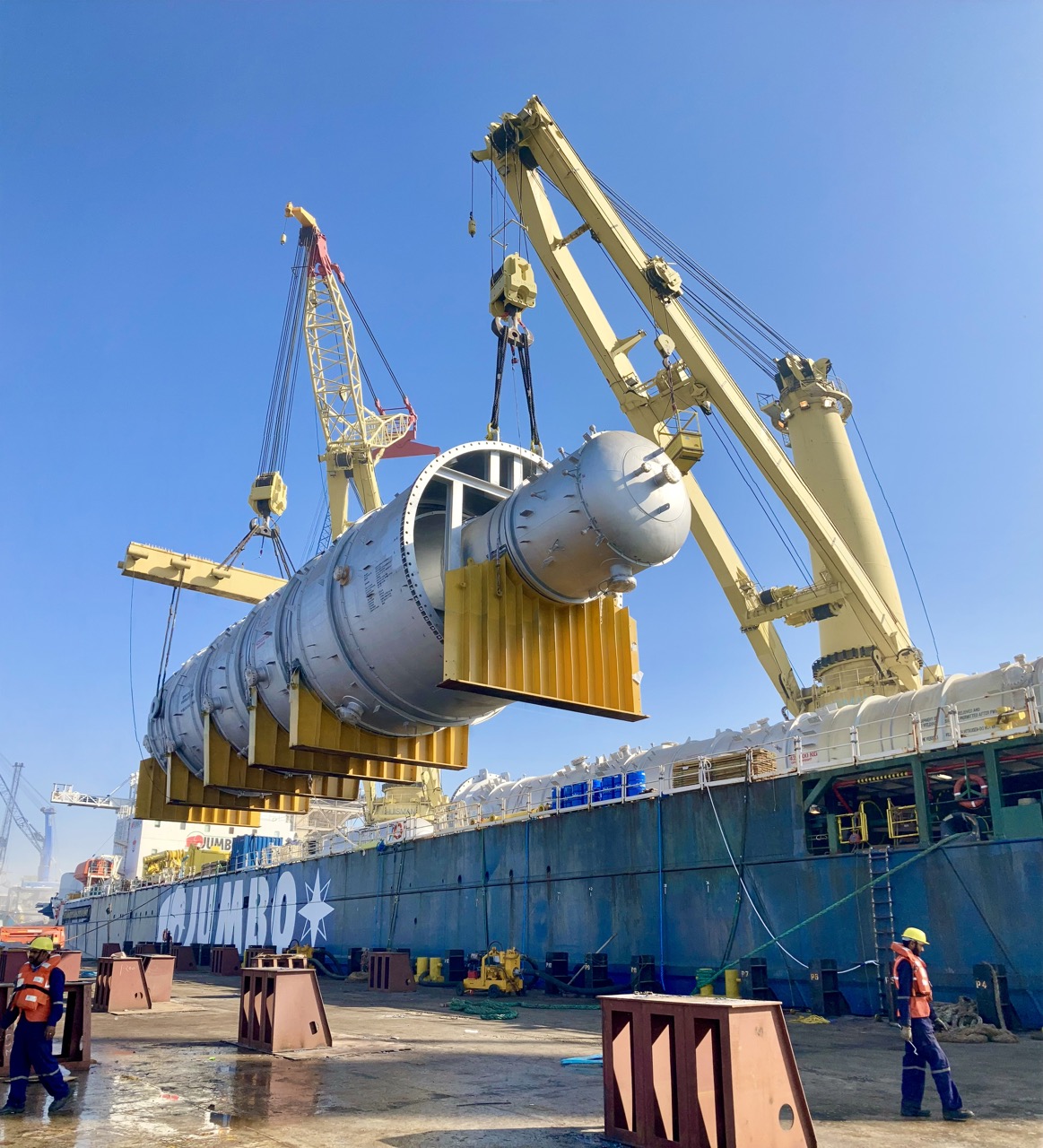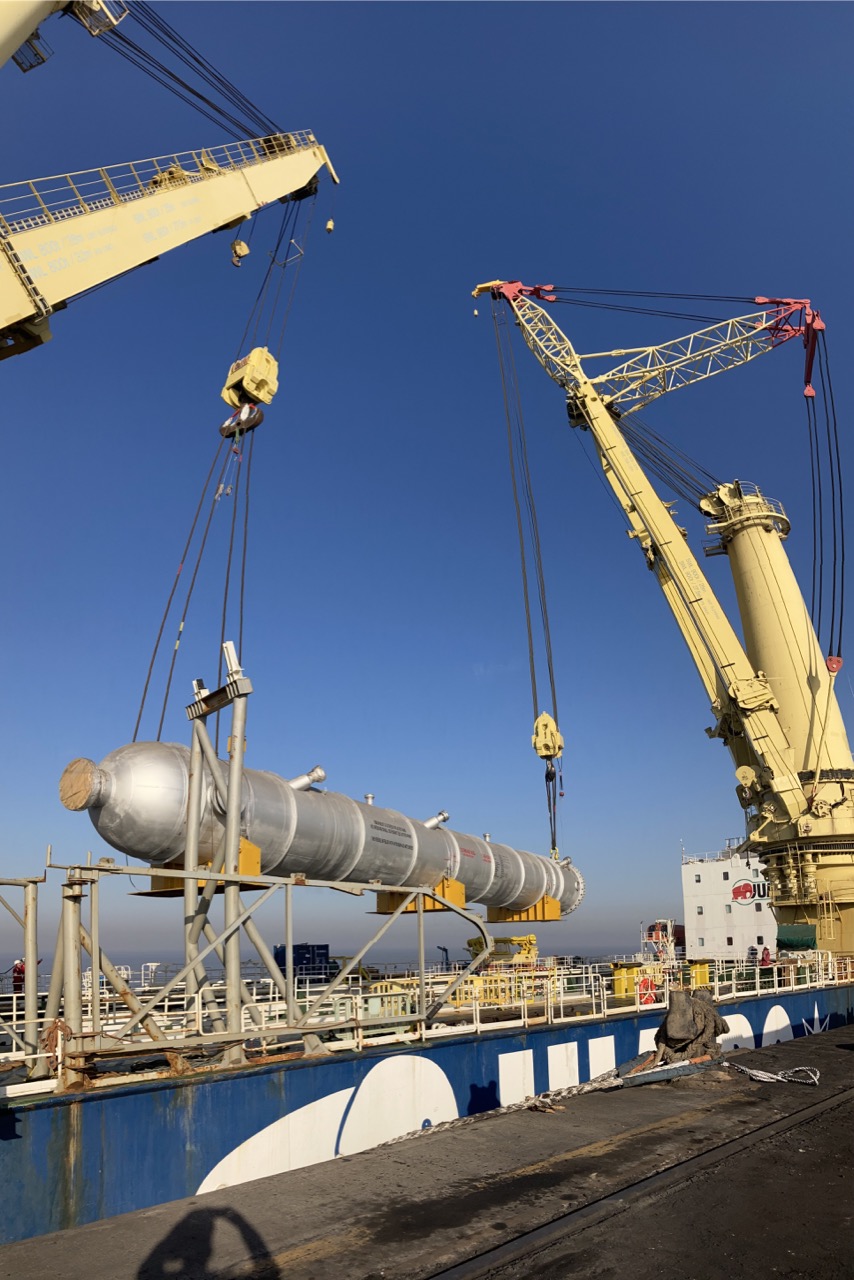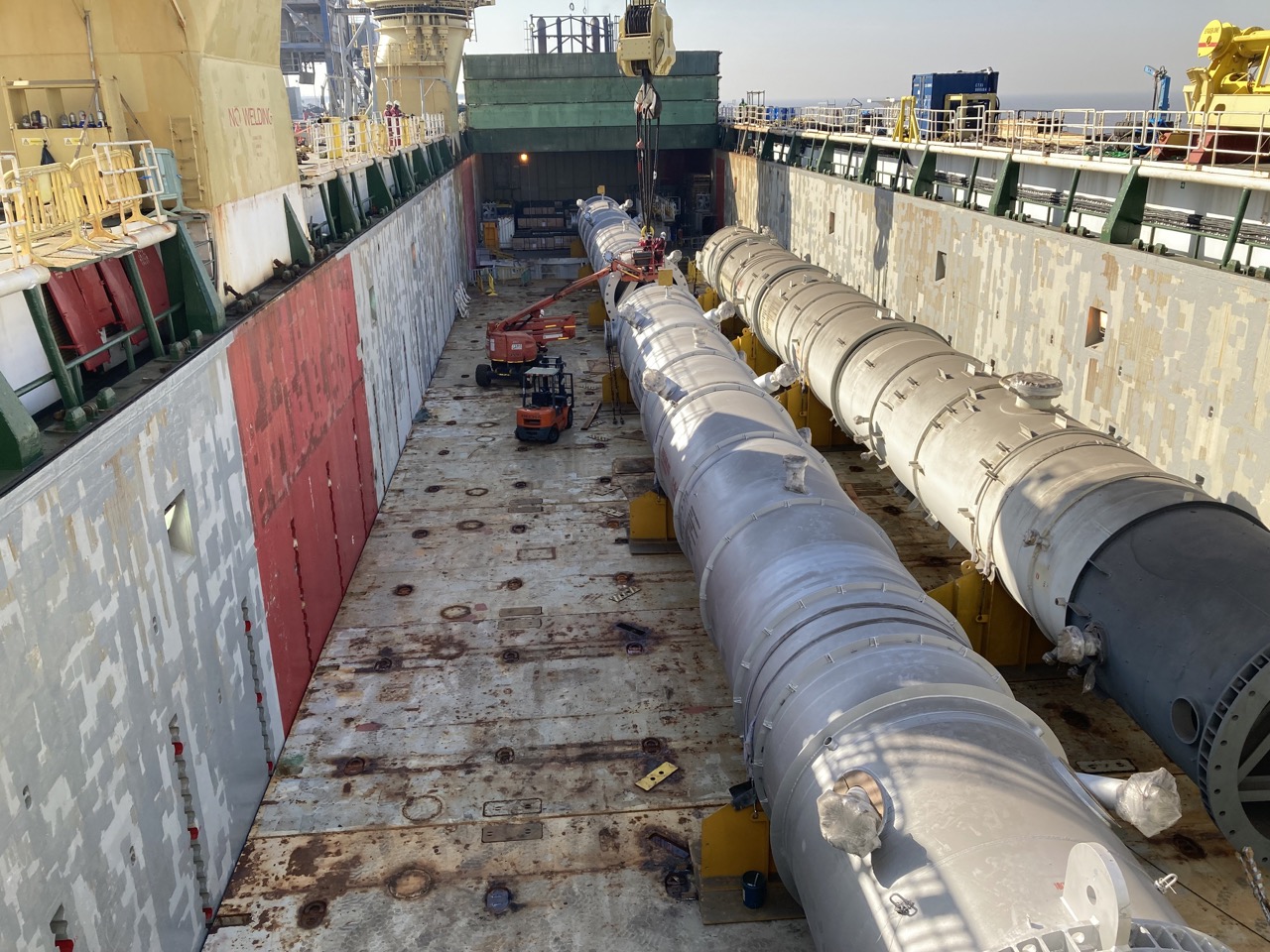
The Jumbo-SAL-Alliance (JSA) has commenced its scope of work in the Basrah Refinery Upgrading Project for JGC Corporation. It is one of the largest projects ever undertaken by the Alliance. The Jumbo Javelin loaded the first of 19 transports at Dahej India.
Dedicated vessels
The project will see the Jumbo-SAL-Alliance undertake the transportation of a total of 450,000 frts of cargo for its client. Jumbo Kinetic, with two 1,500 t cranes, and SAL Heavy Lift’s MV Svenja, with two 1,000 t cranes will be dedicated to the project for the duration of the transportation scope.
During this time, the two vessels will undertake seven voyages each, providing the project with full flexibility and control of logistics. Sailing schedules are firmly fixed so that all parties within the logistical cycle know well in advance when which cargo will be collected and delivered.
The two vessels, with deadweight tonnage of 14,000 t and 12,500 t respectively, are strong enough to handle all modules and small enough to be able to access the restricted Morimatsu plant in Nantong, China, where much of the cargo will be loaded.
Stronger together
In addition to the two vessels committed to the project, the Jumbo-SAL-Alliance will provide vessels to conduct additional five voyages. With its combined fleet of thirty vessels, the Alliance can offer JGC a vessel with the required capabilities and service level each time, while also ensuring its ability to continue to serve other clients.
Mr. Kiharu Yamashita, Project Logistics Manager of Basrah Project, JGC explained: “Having the two dedicated vessels for the duration of this phase gives us visibility, ensuring that we can remain on schedule. Jumbo-SAL-Alliance who can accommodate the size and capability required for this project is indispensable for the successful delivery of the project to our client.”
Conducting consecutive runs, the Jumbo-SAL-Alliance will transport a range of items from locations in India, China, Thailand, and Korea. Amongst the cargo will be 80 modules. Here, the Alliance will draw upon its experience of using module lifting frames. This will be applied by using JGC’s in-house designed frame, which is specially developed for lifting modules at the Morimatsu facility.
The shipments will also include transportation of 31 pieces of equipment including a regenerator, vacuum columns, a fractionator, and seven 800 t bullet tanks, each one 82 m in length.
Total project focus
The Jumbo-SAL-Alliance began preparations for the project back in 2019, with the provision of engineering support. This included the design of four different loading spread mats, covering the various vessel types to be used, cargo footprint and location of the cargo on the vessel.
As the project is undertaken in consecutive runs with the same vessels, the load-spreading material can be recycled (re-used) each time, offering optimal cost-efficiency.
Laurens Govers, Commercial Manager at Jumbo-SAL-Alliance: “In every project that we undertake we consider not only the costs of transportation, but also the total project cost. With this project, our early involvement played a considerable role in this. We were able to work along with the client in tweaking the sailing schedule and suitable vessel rotations to match the vessels and maximise efficiency.”
Preparations for the project included the creation of a hybrid contract servicing the needs of both parties and tackling the potential challenges of operating in the Basrah region. As this is still considered a hostile environment, the two companies had a particularly keen focus on safety.
With the performance of the main logistical scope for the Basrah project, the Jumbo-SAL-Alliance is showcasing its ability to act as a full-service logistical provider for complex and larger project scopes. Supported by solid in-house engineering, project management, live QHSE procedures and protocols and, above all, experienced crew, the Alliance aims to ensure that cargo is handled, and sea fastened for safe delivery, on time and on budget.
Building the future
JGC is carrying out an EPC scope in the refinery upgrading project on behalf of the South Refineries Company, an energy company under the Iraq Ministry of Oil. JGC’s scope includes construction of a fluid catalytic cracking unit (34,500 bpd capacity), a vacuum distillation unit (55,000 bpd) and a diesel desulfurization unit (40,000 bpd).
The new facility will be located adjacent to the current Basrah refinery and will provide plant facilities that meet the international environmental standards.
Funds for the project have been provided by a loan from the Japan International Cooperation Agency (JICA). It is the largest Japanese assisted reconstruction project since the 2003 Iraq War. For JGC Group, it is the second project in the country since their completion of a power plant reconstruction in 2013.
The upgraded refinery will help to close a supply-demand gap for Petroleum products in Iraq, reducing the country’s dependence on imports. It will also contribute to reconstruction and economic growth, not least in the creation of several thousand jobs both for the construction and operation of the refinery.

